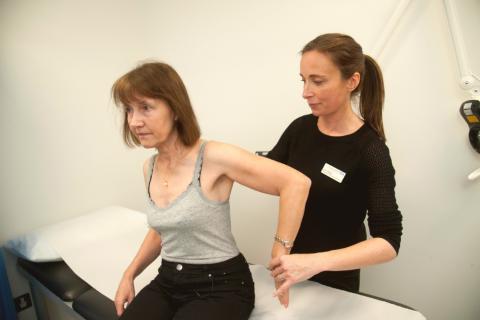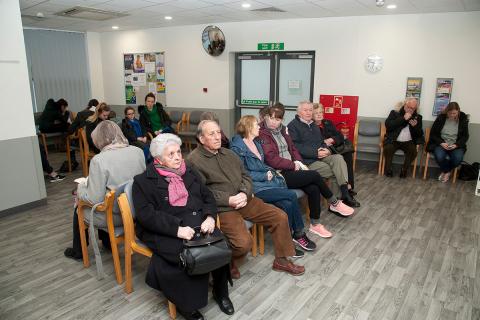Read our most frequently asked questions about record keeping for first contact physiotherapists (FCPs) in primary care. This document is designed to be used in conjunction with the CSP Record Keeping Guidance.
Record-keeping for first contact physiotherapists
My FCP consultations are only 20 minutes long. How do I complete my records in this time?
- An FCP should use the same electronic record system within the [GP] practice setting. Core information such as past medical history and medications will already be populated and the existing templates will save you time. FCPs are advanced clinicians who make clinically reasoned expert decisions in order to complete a safe and effective assessment in a condensed time. The FCP record will need to be accurate and logical but streamlined, much like the assessment.
Are there different regulatory requirements for records in an FCP setting?
No. As an HCPC registrant, you have a professional and legal obligation to keep accurate records according to the HCPC Standards of Proficiency.
While the context of clinical practice does not alter the basic content, FCP records by their nature will be a more concise recording of the key facts. There is likely to be a greater emphasis on red flags and safety netting. Services should look to use standardised quality patient resources, information leaflets and sources of information such as reliable websites to allow for quicker recording of advice given.
Do I have to use SOAP notes?
- No. You can use any style of record-keeping providing it captures the elements of assessment, advice (including safety netting) and treatment that you have provided (see above). There is no regulatory requirement to use the SOAP format in physiotherapy records but you can use this approach if you wish.
Can I use abbreviations?
- The use of short codes and abbreviations will assist with record keeping. However, the FCP consultation record will be used to share information between care providers along the musculoskeletal pathway therefore it is important that short forms and abbreviations are aligned to national standards where possible. The use of SNOMED CT codes is now mandatory in primary care in England following a phased roll out from April 2018.
- Additional short forms can be agreed and used locally within a governance framework. See the CSP’s record-keeping guidance for further detail.
Should I use the NHSE national dataset template?
Yes. The templates are available for the three most commonly used systems in primary care but there is also a coding table that can be used to create templates in any other system. If you do not use an electronic system, then the data items should be used to create other data collection methods. If you were not part of the NHSE national evaluation then you do not have to submit monthly data to the national team. However, your data can be used to inform future rollout and improve FCP services locally.
A revised national template for England is due for release in 2020. This can be embedded into local systems making point of care easier and more streamlined. It also has a more automated method of data extraction.
While the templates were initially designed for the FCP evaluation in England, services in Wales, Scotland and Northern Ireland can still use them to collect data (depending on your system version). Work is ongoing to produce country-specific templates.
Has the CSP developed an audit tool for FCP notes?
The CSP generic record-keeping audit tool for notes remains applicable and can be amended to reflect the local FCP context
If you have questions not addressed by the above answers, please post to the first contact physiotherapy iCSP forum or email fcp@csp.org.uk







































